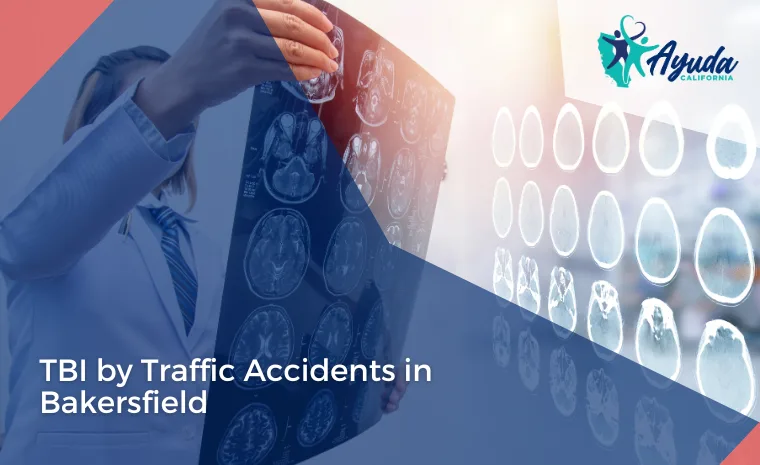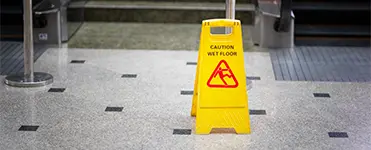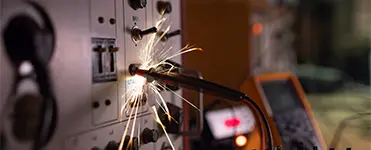In the bustling city of Bakersfield, where the daily rhythm is marked by the hum of traffic, the unfortunate reality of road accidents looms as a persistent threat. Among the countless consequences of these incidents, traumatic brain injuries (TBI) stand out as a particularly devastating outcome. The roads of Bakersfield witness numerous travelers navigating through the urban landscape; however, the risk of suffering a traumatic brain injury is a harsh reality that cannot be ignored.
According to recent data, the world has experienced a notable increase in the incidence of TBI by traffic accidents in recent years. In 2023, 50% of reported traumatic brain injury cases resulted in fatalities, highlighting the urgent need for awareness, legal representation, and comprehensive support for those affected.
In this blog, we will examine the prevalence, causes, and legal implications of TBI caused by traffic accidents in Bakersfield, to equip readers with the necessary knowledge to navigate these challenging circumstances with the assistance of a personal injury lawyer.
TBI: Causes and Long-Term Consequences
Traumatic brain injury (TBI) is a type of injury that occurs when the head undergoes significant trauma, either through a direct blow, violent shaking, whiplash, or penetration of the skull. Car accidents are one of the leading causes of traumatic brain injuries in Bakersfield, as occupants of vehicles can experience strong impacts during collisions or rollovers. Below, we describe how TBI can occur in a traffic accident and the potential long-term consequences:
- Direct impact: During motor vehicle accidents, the head may strike the windshield, steering wheel, vehicle dashboard, or other surfaces, resulting in a direct and sudden impact on the skull. This type of impact can cause damage to the brain and axonal injuries due to the force of the blow.
- Violent shaking: Even if there is no direct impact on the head, the violent shaking that occurs during a collision can cause the brain to move sharply inside the skull. These closed-head injuries can cause damage to brain tissue and lead to traumatic brain injury.
Traumatic brain injuries (TBI) encompass various types, ranging from mild concussions to more severe cases, like skull fractures, that can have devastating consequences. In head injuries, it is common to observe symptoms such as loss of consciousness, loss of awareness, blurred vision, and loss of memory, which are manifestations of the severity of the head trauma. Victims of injuries often experience persistent headaches, as well as chronic pain, especially in cases of more severe injuries that may involve bone fractures.
Seeking appropriate medical treatment for severe brain injury from motor vehicle crashes is necessary to mitigate the risks of related deaths and address sensory symptoms that may arise, such as visual disorders, a strange taste in the mouth, or auditory symptoms. The long-term consequences of a traumatic brain injury can be varied and affect different aspects of the victim’s life, making it critical to seek assistance from traumatic brain injury lawyers experienced in these injuries. Some possible consequences of the more common types of injuries include:
- Cognitive problems: TBI can affect cognitive function, including memory, attention, concentration, and mental processing speed due to damage to the brain’s blood vessels. This can impact a person’s ability to perform daily tasks and engage in work or academic activities.
- Changes in personality and behavior: Certain types of brain injury can affect emotional regulation and behavior. The victim may experience changes in personality, irritability, depression, anxiety, or even aggression.
- Motor problems: Depending on the severity of the injury, the affected person may experience difficulties with motor coordination, balance, and muscle strength, as well as intense headaches that affect the ability to engage in physical and daily activities.
- Sleep disorders: TBIs can also cause problems in sleep patterns, such as insomnia or excessive daytime sleepiness.
- Social and occupational difficulties: The long-term consequences of a TBI can interfere with the victim’s social and occupational relationships. The ability to communicate, solve problems, and adapt to new situations may be compromised.
People who have suffered a TBI should receive appropriate medical care and rehabilitation to maximize recovery and minimize long-term consequences. Treatment may include physical, occupational, and speech therapy, and psychological support. The severity of the injury and the speed at which medical attention is provided significantly influence the long-term prognosis, especially if a concussion is detected or if whiplash occurs.

Proving Third-Party Liability in TBI Cases
Demonstrating liability in a traumatic brain injury (TBI) case resulting from car accidents in California requires careful consideration of several factors and compliance with legal standards. Here are key steps and strategies that can help establish liability:
Collect Evidence at the Scene
If possible, gather all possible evidence at the accident scene. This may include photographs of the vehicles involved, the environmental conditions, and any relevant road conditions. Don’t forget to obtain contact information from eyewitnesses who can provide statements about the accident.
Obtain Police Reports
Request a copy of the report filed after the accident. This document, in addition to being the official version of the incident, often contains crucial details about car accidents, including statements from the parties involved, the officer’s assessment of fault or responsibility, and any issued citations.
Preserve Medical Documentation
Seek immediate medical attention for any TBI victim after the accident. Medical records and bills detailing the nature and extent of the injury are critical evidence, so seek opinions from medical professionals who can attribute the TBI to the specific accident in question.
Look for Surveillance Footage
Identify and secure any surveillance camera footage from nearby businesses or traffic cameras that may have captured the accident. Video evidence can be highly persuasive in determining liability.
Preserve Evidence
Ensure the preservation of all relevant evidence, including damaged vehicles, before repairs or disposal. This may be crucial for recreating the scene or establishing the severity of the impact with the help of an attorney.
Consult with an Accident Lawyer
Seek the assistance of personal injury lawyers specializing in TBI resulting from traffic accidents. They can navigate complex legal processes with any insurance company, build a strong case, and advocate on behalf of the injured party due to their familiarity with California’s traffic laws and regulations. If the at-fault party violated any traffic laws, a lawyer can strengthen your case, demonstrating that the at-fault party had a duty of care that was breached through negligent actions, and the breach directly caused the TBI.
Seek Expert Testimony
Your lawyer can help consult with accident reconstruction experts who can analyze the circumstances surrounding the collision. This testimony can establish how the accident occurred and who was at fault.
Proving liability in a TBI case requires a comprehensive approach that combines legal expertise, thorough investigation, and compelling evidence. Consulting with an experienced personal injury attorney can significantly enhance the chances of a successful outcome when seeking compensation for the victim.
The Importance of Legal Representation in Your Language
Having a legal representative who speaks Spanish in places with a significant population of Spanish speakers, such as Bakersfield, California, can be crucial for your well-being and chances of obtaining justice for several reasons:
- Access to justice: Many Spanish speakers may face language barriers when dealing with the legal system. Having a legal representative who speaks Spanish facilitates access to justice, as clients can communicate effectively with their lawyer, understand legal procedures, and participate more actively in their own case.
- Effective communication: Communication is fundamental in any professional relationship, and this is especially important in legal matters. A legal representative who speaks Spanish can ensure clear and effective communication with the client, avoiding misunderstandings that could arise due to the language barrier or assessing all the details of the case, such as lost wages, pain and suffering, or major brain injuries.
- Culture and context: A lawyer who speaks Spanish is not only familiar with the language but can also better understand the culture and context of Spanish-speaking clients. This can be essential for addressing legal issues that may be related to specific cultural or social matters.
- Trust and empathy: Trust is essential in the attorney-client relationship. For many Spanish speakers, being able to communicate in their native language creates an atmosphere of trust and comfort. Additionally, a lawyer who speaks Spanish can demonstrate greater empathy toward the concerns and unique experiences of the Spanish-speaking community.
- Maximizing results: By having a lawyer who speaks Spanish, clients can more effectively participate in the legal strategy and better understand their rights and options. This can translate into better legal outcomes, as clear understanding and active collaboration between the client and the lawyer are crucial for building a strong case.
The presence of a legal representative who speaks Spanish in places with a significant population of Spanish speakers, such as Bakersfield, California, is crucial to ensuring access to justice and effective legal representation for the Spanish-speaking community.
Justice is on Your Side
The issue of traumatic brain injuries resulting from a car accident in Bakersfield presents an alarming reality, as evidenced by the notable increase in cases, according to statistics. Faced with this situation, awareness, legal representation, and comprehensive support become imperative for the affected victims.
The potential repercussions on cognition, personality, motor skills, sleep, and social and work life underscore the urgent need for medical attention and rehabilitation. Additionally, the process of proving third-party liability in TBI cases from traffic accidents in California requires careful collection of evidence at the scene, obtaining police reports, medical documentation, and searching for surveillance footage.
Consulting with legal professionals, including specialized lawyers and accident reconstruction experts, proves to be an essential component to strengthen TBI cases from traffic accidents.
TBIs resulting from traffic accidents in Bakersfield are always serious, and the presence of an experienced Spanish-speaking lawyer is a crucial element to ensure justice and proper representation in a car accident claim. Contact us for a free consultation.


















